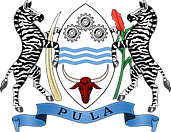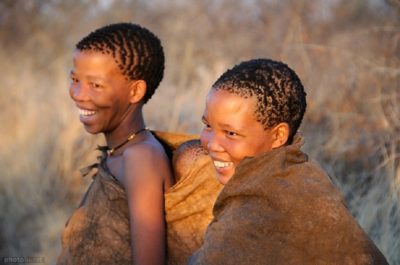Welcome to Botswana
Botswana, a land of staggering beauty, is ideally located in the heart of Southern Africa. This is the country where the river ends in the sands of the Kalahari. Its natural beauty lies in its land constellation, its wilderness, wildlife and cultural diversity. Come to Botswana and feel that constant sense of being close to nature. Geographically a landlocked country, Botswana’s surface area is about 582, 000 square kilometres.
Among the major tourist attractions are the enigmatic Okavango Delta, said to be the largest inland delta in the world; Chobe National Park, home of the largest elephant population in the world; the golden sands of the vast Kalahari Desert; the Tuli Block with its rugged terrain and the Moremi Game Reserve. The natural endowments provide diverse products including safaris, water canoeing, boat cruises, hunting and fishing adventures. Due to the involvement of the private sector in the tourism industry, tourism accounts for about 40% of the employment opportunities that have been created in the northern part of Botswana. 17% of Botswana is reserved as parks. The country has adopted a policy of low-volume, high-cost for tourism, which is intended to facilitate protection of the fragile natural environment and stimulate sustainable tourism development.
History and Culture
Botswana a former British protectorate attained independence in 1966. The country has established itself as one of the few successful multi-party democratic states in the Sub-Saharan Africa. Free, fair and peaceful general elections are held after every five years. Though English is the official language, however, the country is multiracial and inhabited by different ethnic groups who live peacefully and in harmony with each other. Botswana has enjoyed a remarkable economic growth since independence, from being one of the poorest to be amongst the fastest growing economies in the world.
Religion
Generally a Christian country with a small population of Muslims and other religions, complemented with indigenous magico-religious practices.
Culture
Traditionally, Batswana were ruled by chiefs and settled in large villages near rivers and hills. They were successful agro-pastoralists and fought many wars to protect their livestock. They have attained the skill of smelting copper, iron, gold and traded salt with neighbouring states.
Hunting and gathering was practised by all tribesmen but guided by very strict traditional conservation strategies combined with sustainable environmental plans embedded in taboos and myths. This cultural heritage enabled Botswana to preserve vast and diverse species of wildlife and natural resources.
The tradition of the Kgotla practised from the iron-age period laid a very strong and disciplined foundation for modern democracy and prudent resource utilisation.

